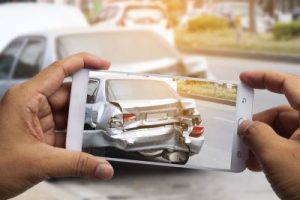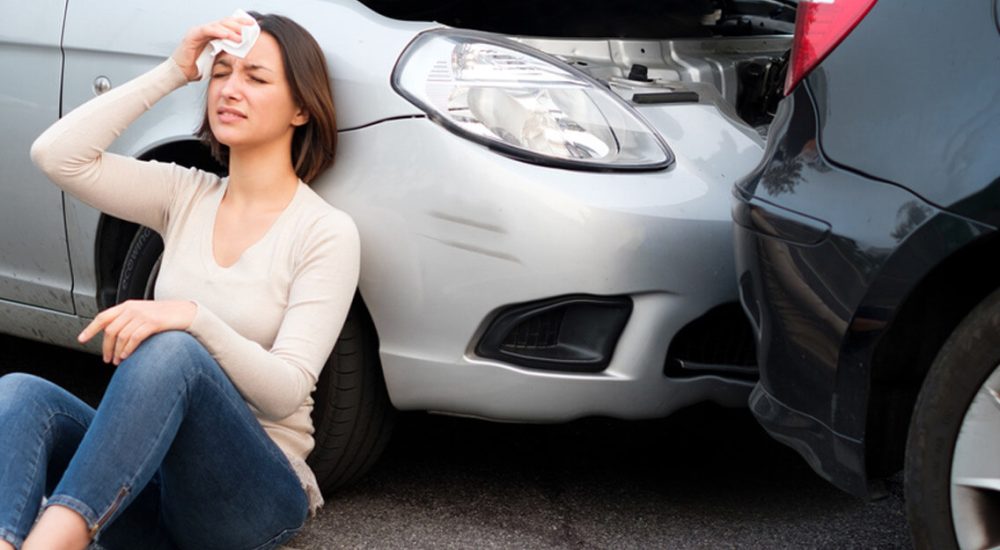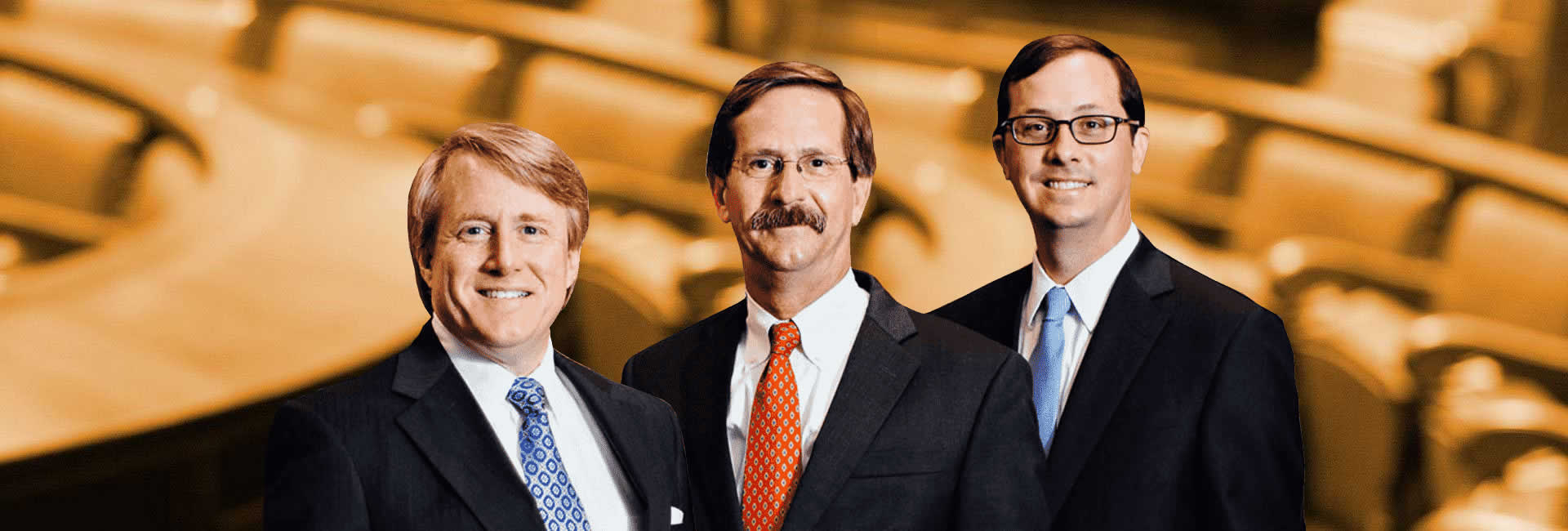|
|
Last Modified on Mar 10, 2023
When a car accident involves certain scenarios, it can become easy to assume fault. When someone is speeding in excess, driving while drunk, or texting behind the wheel when they’re involved in an automobile accident, it is unlikely that they will be able to avoid liability for the crash.
One of the most common situations that people sometimes believe points to guilt is when a motorist hits another vehicle while backing up. While it is true that someone who backs up and hits another vehicle (often in the course of parking or leaving a parking spot) is often solely at fault for the collision, this is a deceptively simple reduction of a car accident scenario. Car accidents can often be complex and multi-faceted, with differing viewpoints and multiple parties potentially sharing the blame, and these potential complexities aren’t made irrelevant just because one of the drivers involved was operating in reverse at the time of the collision.
Situations Where Backing Up Doesn’t Necessarily Equal Guilt
So, when might someone involved in a collision while backing up be off the hook for liability? As with any automobile accident, there are an almost unlimited number of extenuating factors that could affect determining who’s at fault for an accident, but consider the following examples:
- Someone backs up and collides with a vehicle that is illegally parked.
- Someone, while backing out of a space, strikes another car that is operating in a way that caused or contributed to the collision (for example, going the wrong way down a one-way street, taking a blind corner too fast, or cutting through a private parking area).
- Two vehicles simultaneously back out of separate spaces in a parking lot and strike one another.
- A parked driver, after properly checking their surroundings for safety, puts their car in reverse to begin the process of exiting a parallel parking space. As they are moving backward, the driver parked directly behind them puts their vehicle in drive and attempts to exit their parking space without carefully checking their surroundings, resulting in a collision with the car being backed up.
In these and other scenarios, determining guilt isn’t quite so easy as pointing a finger at whatever driver had their car in reverse. It is true and reasonable that cases of one car backing into a parked, non-moving vehicle usually are open-and-shut matters when it comes to determining guilt. But more complex car accidents — especially when they involve two simultaneously moving vehicles — need to be carefully considered on a case-by-case basis that accounts for situational factors and includes a thorough review of all available evidence.
If you feel pressured by another motorist, an insurance agent, or a law enforcement officer to admit guilt after an automobile accident based solely on the grounds that you were backing your car up, it is in your best interests not to say or sign anything. In these situations, you have the right to decline to answer any further questions and seek legal representation immediately. Stevenson & Murray can help you if you have questions or concerns in the aftermath of an automobile accident you’ve been involved in. We will use our expertise and intimate knowledge of the Texas legal system to protect your rights and aggressively pursue any damages you may be owed.
Determining Fault in a Car Crash When Backing Up
 In Texas, you need to know who is at fault if you are in a car accident where one of the driver’s backed up. Our Houston car accident lawyers tackle these questions and more below. But, if you were in an accident, let us help you determine fault now by calling us for a free consultation at (866) 806-8538 or filling out the form on the right and giving us a few details.
In Texas, you need to know who is at fault if you are in a car accident where one of the driver’s backed up. Our Houston car accident lawyers tackle these questions and more below. But, if you were in an accident, let us help you determine fault now by calling us for a free consultation at (866) 806-8538 or filling out the form on the right and giving us a few details.
Fault is not so clear cut in a car accident when backing up. For example, who has the right of way when backing up in a parking lot? Are oncoming drivers expected to exercise extra caution when another driver is backing out onto the road? Read on to learn more about how to determine fault in these types of car accidents.
Two Primary Factors for Determining Fault
When a car accident occurs, there are usually two key indicators of fault. The first factor to consider is: which car was moving? Were both cars in motion? Essentially, when only one car is in motion, that car is most likely at fault for the collision.
The second key factor in determining fault for a car accident when backing up is: who had the right of way? The driver with the right of way will generally not be at fault for the accident. Determining the right of way will depend on the traffic signs, patterns and rules enforceable in the area.
What Are the Most Common Causes for a Car Accident When Backing Up?
Car accidents which involve one or more drivers backing up typically occur in specific locations. For example, parking lots are a prime location for backing up, as drivers are exiting their parking spots. Another hotspot for this type of accident involves drivers who are backing out of their driveways and into a lane of traffic. In these situations, the right of way may be ambiguous. The following is a list of common scenarios and a general guideline for determining fault in each situation.
Backing Out of a Parking Space
Backing out of a parking space and into a parked car will most likely make you at fault for the collision. However, when backing out and colliding with an oncoming vehicle, determining fault is not so clear cut. Since both vehicles are moving, it is likely you will share fault with the other driver to some degree. At the same time, if the other vehicle did not have the right of way given the traffic pattern of the parking lot, then they may be more at fault for the collision. Additionally, if they did have the right of way, then you may be more at fault for not exercising appropriate caution when backing up.
Further, there are times in a parking lot accident where two vehicles will back into each other. Since both are in motion, fault is likely shared. Further, neither driver has the right of way. However, both drivers were responsible for checking their surroundings before backing up. In this situation, both drivers will likely share fault equally.
Backing Out Into Oncoming Traffic
This type of collision usually occurs when someone is backing out of their driveway or parallel parking space. Since both cars involved were moving, they will likely share blame. This is due to both drivers having a responsibility to remain aware of their surroundings and drive cautiously. However, the oncoming car has the right of way on the road. This means that the driver who was backing up should have waited until it was safe to enter the lane before backing out. In this situation, it is likely that the driver backing up is more at fault for the collision.
Involved in a Car Accident When Backing Up? Get Help From a Houston Car Accident Lawyer
While the above represents a general guide to understanding fault when backing up, there are some exceptions. Determining fault in any given car accident case will depend on many factors relative to the case. If you were in this type of accident, then you can schedule a free consultation with our firm to discuss your case. Contact our Houston car accident lawyers by phone at (866) 806-8538 to learn more about your legal options. We serve the entire Houston area, including Kary, Sugarland, Spring, The Woodlands and much more.
FAQs About Back-Up Car Accidents in Texas
How Do Courts Determine Fault in Back-Up Accidents?
Determining fault in a back-up accident works the same as determining fault in any other accident. The fact that one motorist was operating their vehicle in reverse is only one piece of what might be a very complex puzzle. There are no special laws, criminal charges, or legal protections that arise as a direct result of the fact that somebody was backing up.
How Do Insurance Companies Decide Who Is at Fault?
Insurance companies, while not bound to the same legal standards as a court trying a criminal case, determine fault in much the same way a judge or jury would. This is to say that a reputable insurance company should review all available evidence including photographs and police reports before making any determination as to who was at fault in an accident. If you feel you are being pressured or treated unfairly by your insurance company, an attorney experienced in traffic law can be an invaluable resource.
What Is a Back-Up Accident?
When someone refers to a “back-up accident” they are usually referring to an automobile crash where one driver backs into another car (or into a tree, light pole, building, etc.). The phrase “back-up accident” is purely descriptive and holds no special meaning under the law.
Is the Person Backing Up Always At Fault?
As we’ve demonstrated above, no. Going backward is a routine, perfectly legal, and frequently necessary aspect of driving a vehicle. As long as you’re following traffic laws, putting your car in reverse does not automatically put you in any special legal category that would increase your risk or liability in a court of law. If insurance adjusters, other motorists, or public officials pressure you to take responsibility for a traffic accident just because you were backing up when it occurred, it may be worth your time to have a lawyer review your case before continuing with any discussions.
Have You Been Injured By Someone Backing Up Inappropriately?
While we’ve seen here that the act of backing up a car does not always point to someone’s liability, any operation of a motor vehicle is inherently dangerous, and backing up does present unique risks. If someone is distracted or unaware of their surroundings, backing up can be hazardous to the motorists, pedestrians, and property around them.
If you or a loved one have been harmed by someone in a back-up accident in the Houston, TX area, contact Stevenson & Murray Attorneys at Law at your earliest possible convenience. Our highly skilled team will review your case with care and compassion to determine if you may be eligible for a payout. You and your family deserve to be compensated fairly for your injury so that you have the resources you need while you undertake the road to recovery. Leave the legal details to Stevenson & Murray so that you can focus on what matters: healing.




 In Texas, you need to know who is at fault if you are in a car accident where one of the driver’s backed up. Our
In Texas, you need to know who is at fault if you are in a car accident where one of the driver’s backed up. Our 

